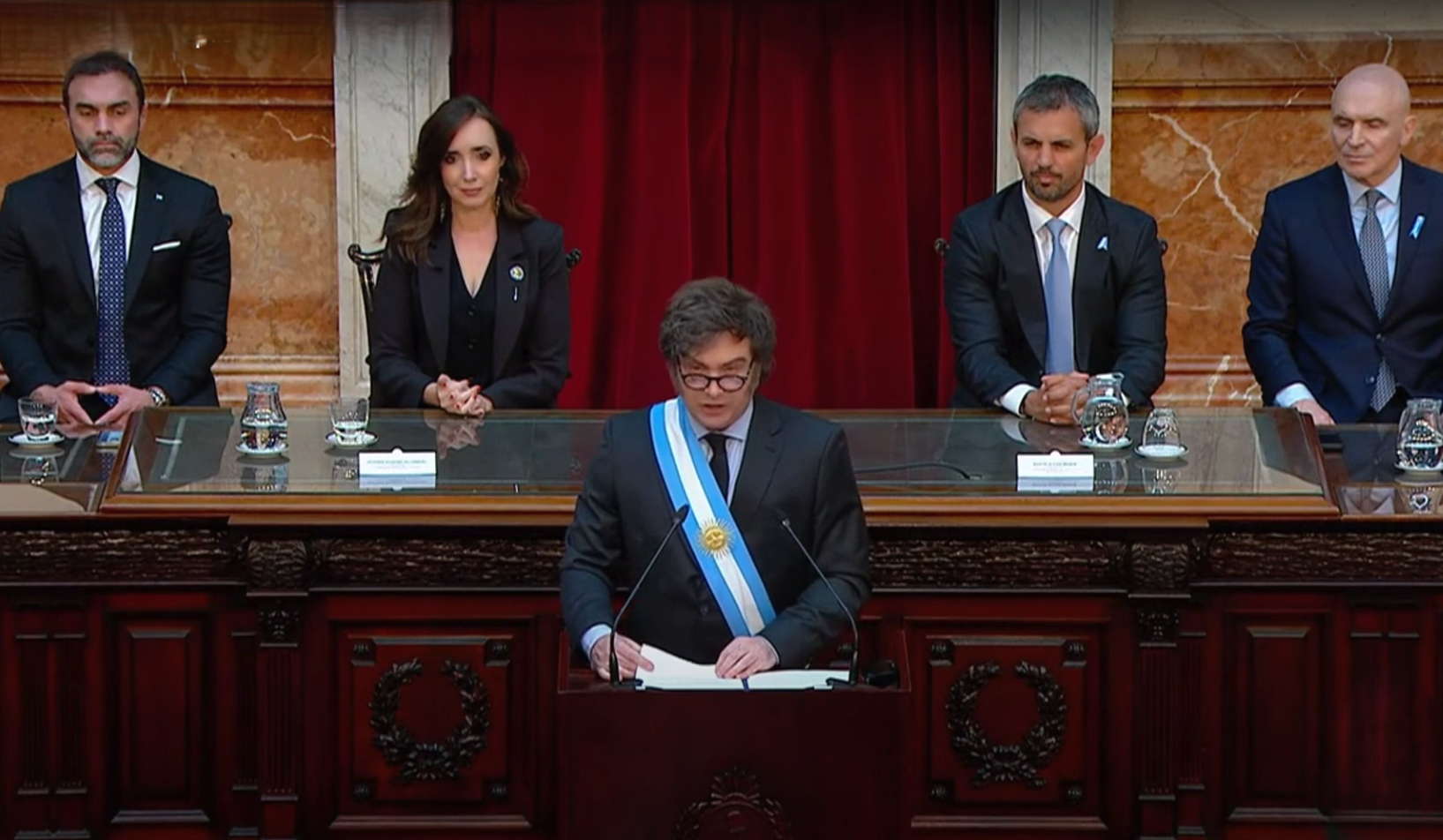In politics, certain details can have a great impact. This is how we can understand and analyze President Milei’s appearance on Sunday, September 15th, at 9 p.m. to present the 2025 National Budget to Congress.
In Argentina, the sitting government presents the budget for the following year at the end of September, so it can be fully debated in Congress. This body then approves it, with amendments, changes, and additions, as it is National Law and cannot be altered once it is implemented.
There were two noteworthy aspects to this traditional and routine political act on Sunday: the day and time of its presentation via an official broadcast, and the fact that it was presented by the president instead of the Minister of Economy, as is typical for economic matters.
The president explained at the start of the event why he was presenting it instead of his minister. In that reason lies both the core issue and the problem: the president announced that the budget would hold the non-negotiable strategy of his government, while adding that this strategy would change 120 years of Argentina’s economic and political history.
The strategy is to have a zero fiscal deficit. The objective is to absolutely prioritize debt repayment. The tool is a primary fiscal surplus that guarantees this debt repayment. The cost is that all other public spending will be conditioned by this strategy.
Translated into everyday life—meaning the living conditions and expectations of the population—it means, and the president clarified this so there would be no doubt (later don’t say I didn’t warn you), that every state expenditure will be subject to the availability of fiscal funds after reserving what is necessary for debt repayment. It makes no difference whether it is public investment, health, education, science and technology, social programs for poverty, security, or the pension system. The equation is simple: if the state has resources after paying debts, there will be public policies. If resources decrease, those policies will decrease in equal measure.
In an economy that so far this year has recorded an annual inflation rate of 94%, with a sharp drop in public sector wages, nearly 55% of the population below the poverty line, and 20% below the extreme poverty line, with spending on education, science, and technology reduced to minimal levels, and regions of the country impoverished, proposing a further deepening of economic austerity seems almost unreal. At the same time, the president demanded that provincial governments cut spending by 60 billion dollars for 2025, even though some provinces can no longer sustain minimal healthcare and education services.
Libertarian doctrine (Austrian economics) advocates the retreat of the state, especially in economic matters, and the transfer of all social needs to the market. At the extreme of this view, any tax policy—that is, resources for public spending—is morally a violation of people’s property. The president said on Sunday that if the economy grows, public spending will not increase but taxes will be cut. Naturally, without mentioning it, this refers to businesses and large fortunes.
Someone once wrote that politics is the art of the impossible. We don’t know if that phrase is poetic or a reflection of historical times long past. Today, in any country in the world, politics is merely the art of doing minimal things if there is a context of possibility that allows them to be implemented.
Milei’s proposal, encapsulated in the 2025 National Budget Bill but understood as a tool of a shock adjustment political strategy, is a politics of the impossible. In Argentina’s socio-economic state, proposing a reduction in essential public services appears as a provocation that can only trigger a cycle of high-intensity protests and social conflict.













